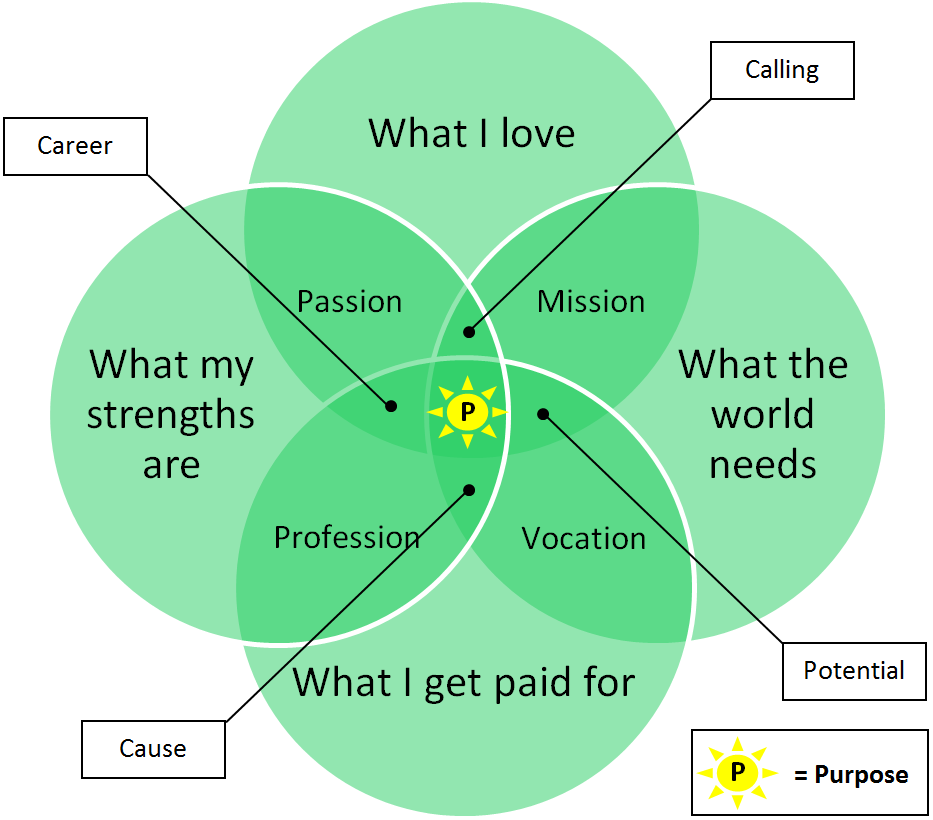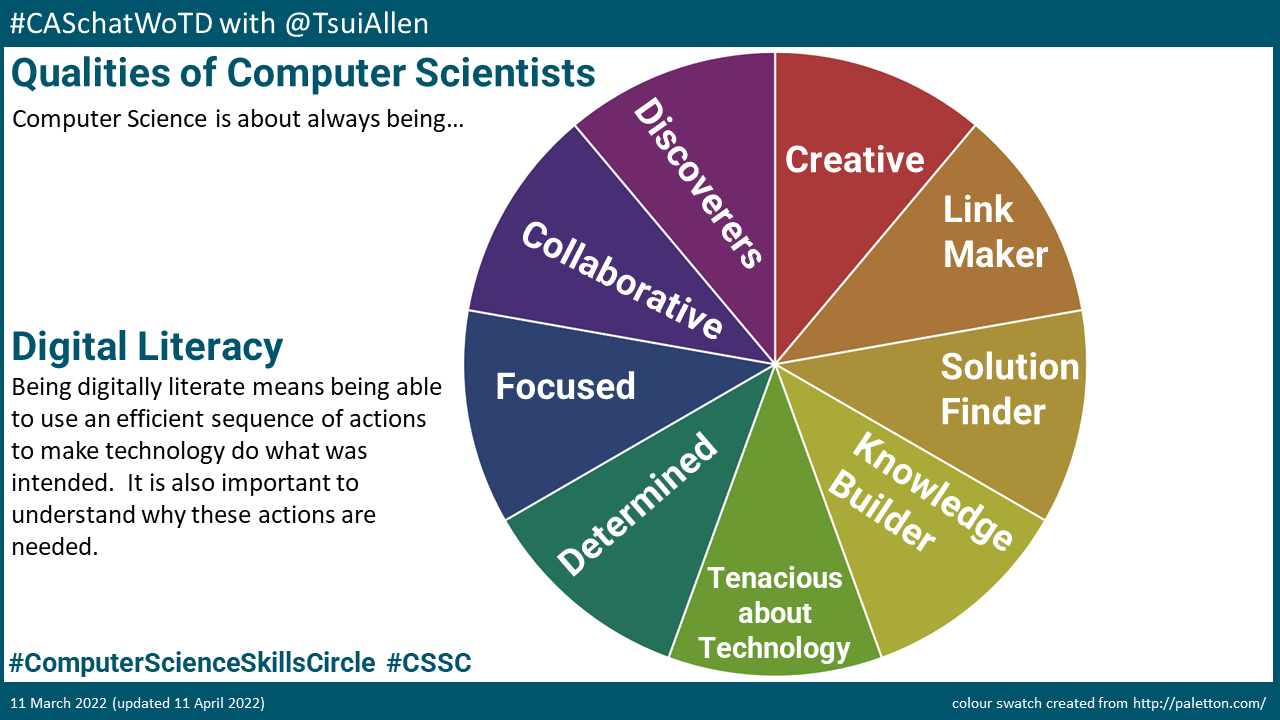

Many associate Twitter with trolls, fake accounts and gas-lighting. There are however by equal measure many who contribute to the micro-blogging platform with positively thought provoking posts. Twitter @MaryMyatt did exactly just that in a thread of a post on “curriculum conversations between subject and senior leaders”. This inspired me to reflect on my experiences as a Computing specialist.
Subject Leadership
Since 2017 I have been on the MA in Educational Leadership at Manchester Metropolitan University. I am currently (August 2022) at the dissertation stage of my studies. My dissertation is what Jane Waite described as “technological capital”. I am therefore slightly ashamed that my approach to subject leadership appears rooted in popular psychology and the realms of Management ‘Science’. Irrespective of its origins and lack of academic credentials, the principle that some refer to as “Ikigai” or “Propósito” as reputedly devised by Andrés Zuzunaga elegantly illustrates how I see myself professionally. I am very fortunate to find myself at the intersect of this four way Venn diagram:

Qualifications versus experience
Other than Subject Knowledge Certificates awarded by the National Centre for Computing Education (the consortium formed by the Raspberry Pi Foundation, National Centre for STEM Learning and BCS, Chartered Institute for IT which received £84 million Department for Education funding in 2018 for a three year period) I have no school or university level qualification in Computing. I have however been, to coin a phrase previously used by Professor Danielle George, “thinkering” around computers and technology since 1982.
Before teaching, I was a Civil Servant where part of my role during my near 24 years career included database management, supporting the establishment of LAN services back in the late 1980s and early 1990s and the multi-million pound digitisation WAN project of an organisation that had over 100 offices and 8,000 plus staff. When the opportunity arose to leave the Civil Service in 2010, I considered training to teach Secondary Computing. However, the lure of working with those at the start of their learning journeys was far greater which is why I elected to train as a primary teacher.
Leadership and Management
I should also use this opportunity to openly declare that I do not aspire to headship. Having held various managerial positions in my former working life, I do not have any desire to be any more senior than I am as a subject specialist. I am also very fortunate to have worked in the Civil Service with a length of service where I will receive a metaphorical “gold watch” in 2028. I am therefore more than professionally and personally content as one of the chronologically older members of the school staffroom. My Civil Service experience has also given me a work outlook where I will readily support decisions made by senior colleagues simply in their Senior Leadership capacity. This is not to say I will passively and unquestioningly follow every decision of senior colleagues. To me, it is about adopting what some have previously described as a symbiotic collegiate approach.
The Intelligent Client
Since 2015 I have been working for and with senior colleagues who have a “can do and want to” attitude. I am delegated a great deal of autonomy as a computing specialist. As a subject leader, I understand my role to work within the strategic structure of the School’s Development Plan. What this implies is that senior colleagues who work with me can apply, once again drawing from my Civil Service experience, an “intelligent client” role. Senior colleagues do not need to have that breadth and depth of subject knowledge that they are Line Managing. Being an “intelligent client” means being able to know what questions they want to ask and who to direct the questions to. Such a leadership approach also means a professional respect where any question that arises is always worthy of asking.
The power of networks
Another wonderful facet of leading computing is how highly structured the subject is. The National Centre for Computing Education (NCCE) as well as Computing at Schools are fantastic sources of resources for supporting teaching computing from Reception to University matriculation. The educational technology sector has also been incredibly supportive in working with schools to ensure their digital learning platforms and range of devices from programmable robots to interactive display systems directly connected to curriculum expectations. The strength of these relationships means that those who teach computing with an active interest in curriculum design and best pedagogical practice have at their disposal a network of support driven by global, industry aligned, cutting-edge standards and expectations.
Qualities of Computer Scientists
Opponents may counter-argue that such approaches carry no pedagogical value and may at worse be faddish whims of marketing mules. I encountered such sentiments when I first wanted to learn computing in the early 1980s. However, computing is so much more than learning about effectively programming bits and bytes or SWOT analysis of Artificial Intelligence. Adapted from the “Engineering Habits of Mind”, developed by the Centre for Real World Learning at the University of Winchester and the Royal Academy of Engineering (2014), Computer Science is about always being able to demonstrate some or all of the following values:

Empowering the digital citizens of tomorrow
Technology has enabled children as young as Reception to be able to learn about computational thinking and become digitally literate to a standard that was or is according to the National Curriculum for schools in England expected by the end of Key Stage 1. This upskilling has manifested itself in the numbers of students who have elected to study Computing at GCSE and A-Level as well as gone on to study on a Computer Science related degree programme or Apprenticeship. Furthermore, the ability to network via social media has enabled me to continuously reflect on my own professional practice. This has hopefully in turn lifted the limits on learning to new heights and futureproof the digital citizens of tomorrow.